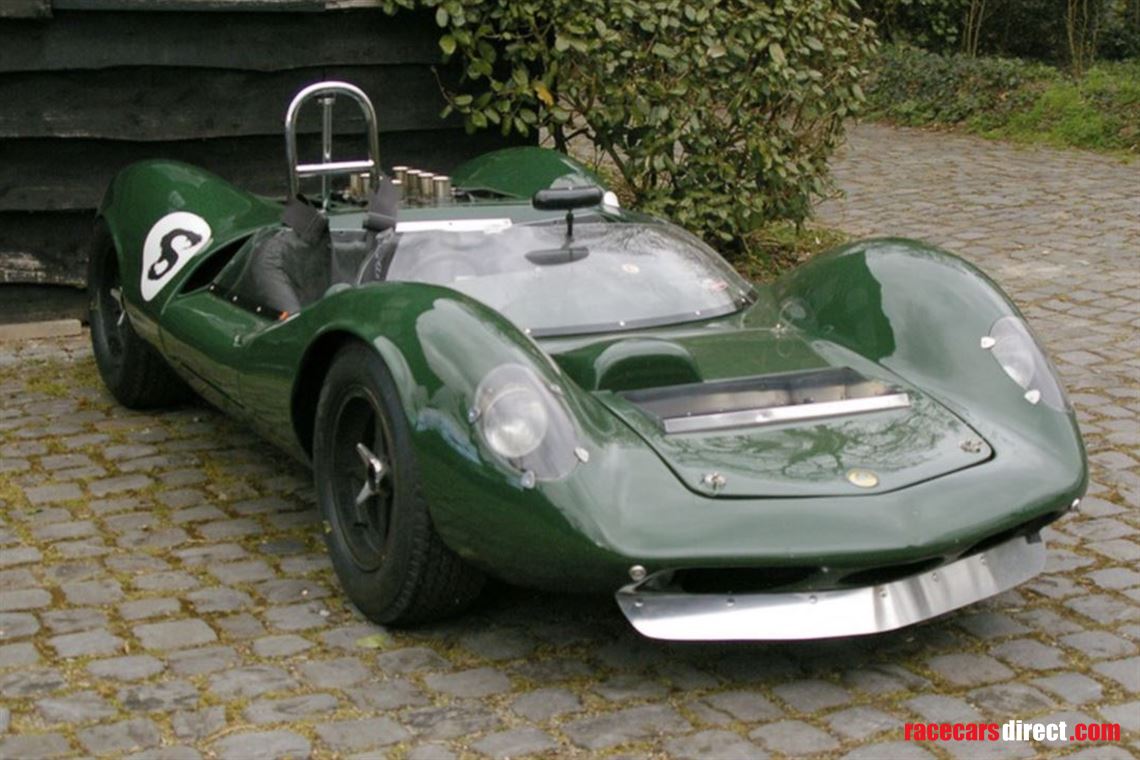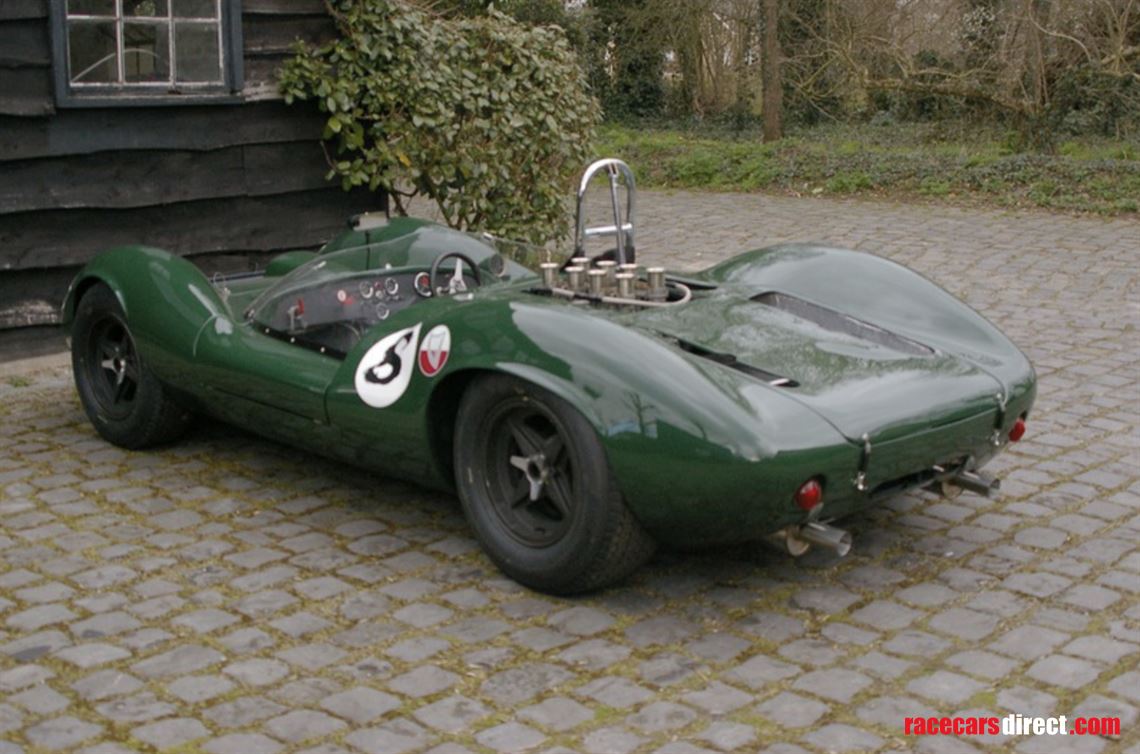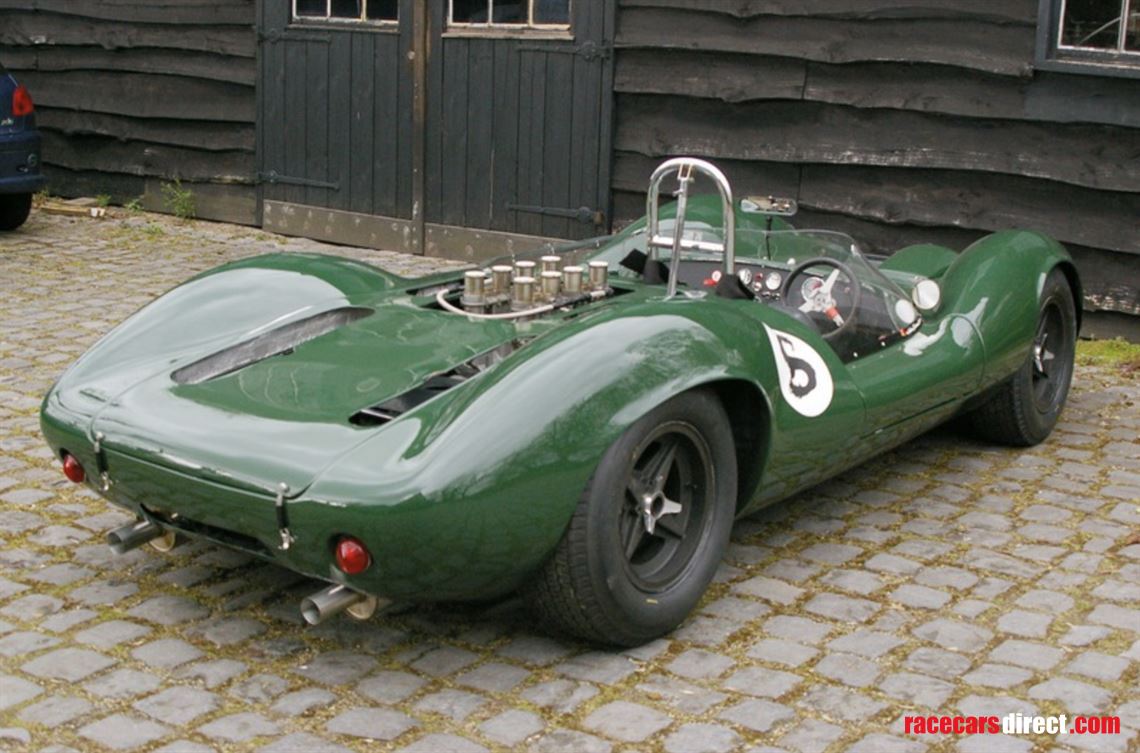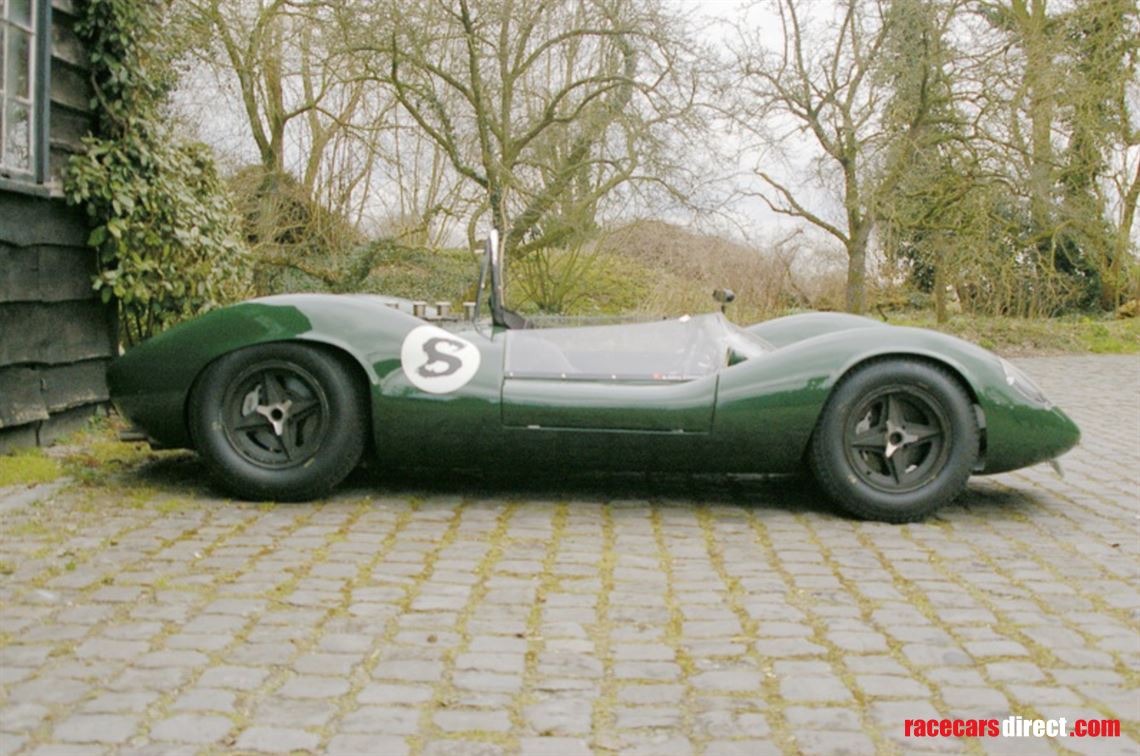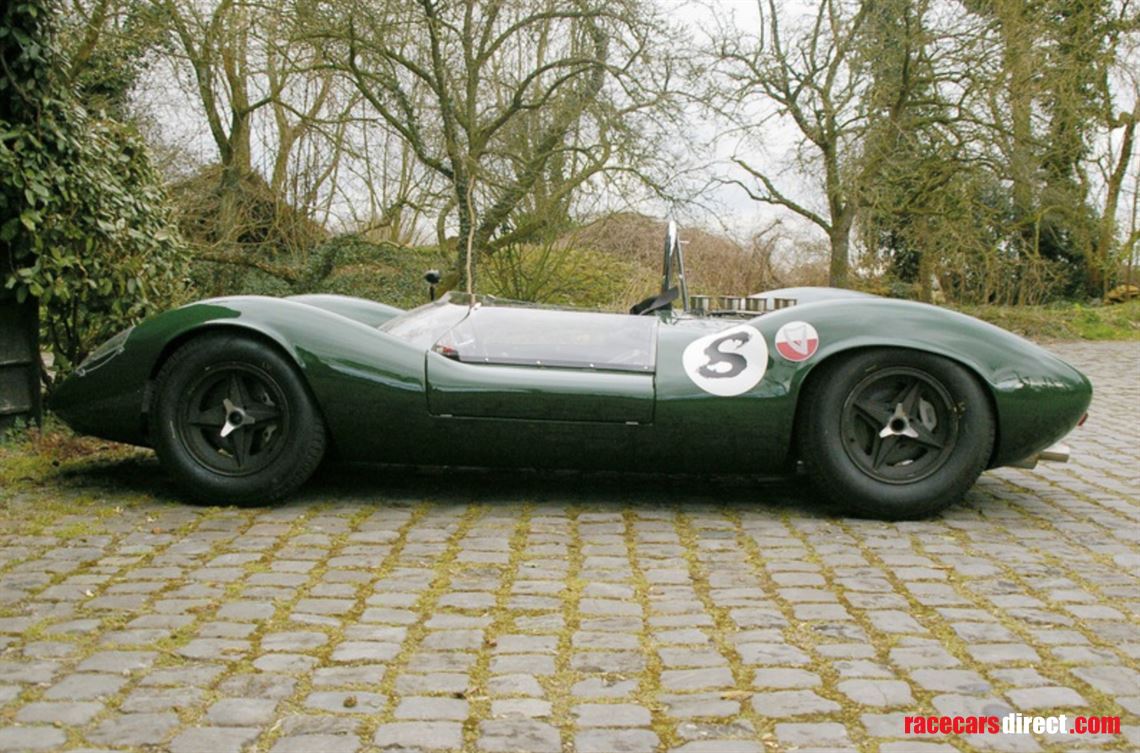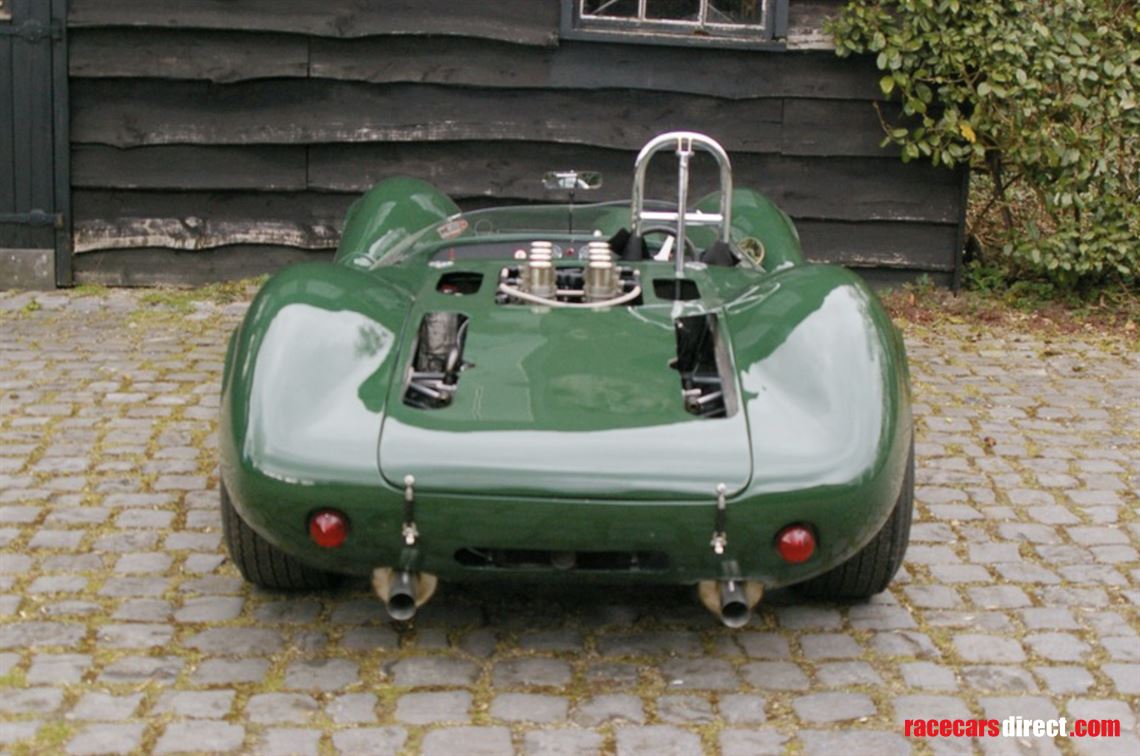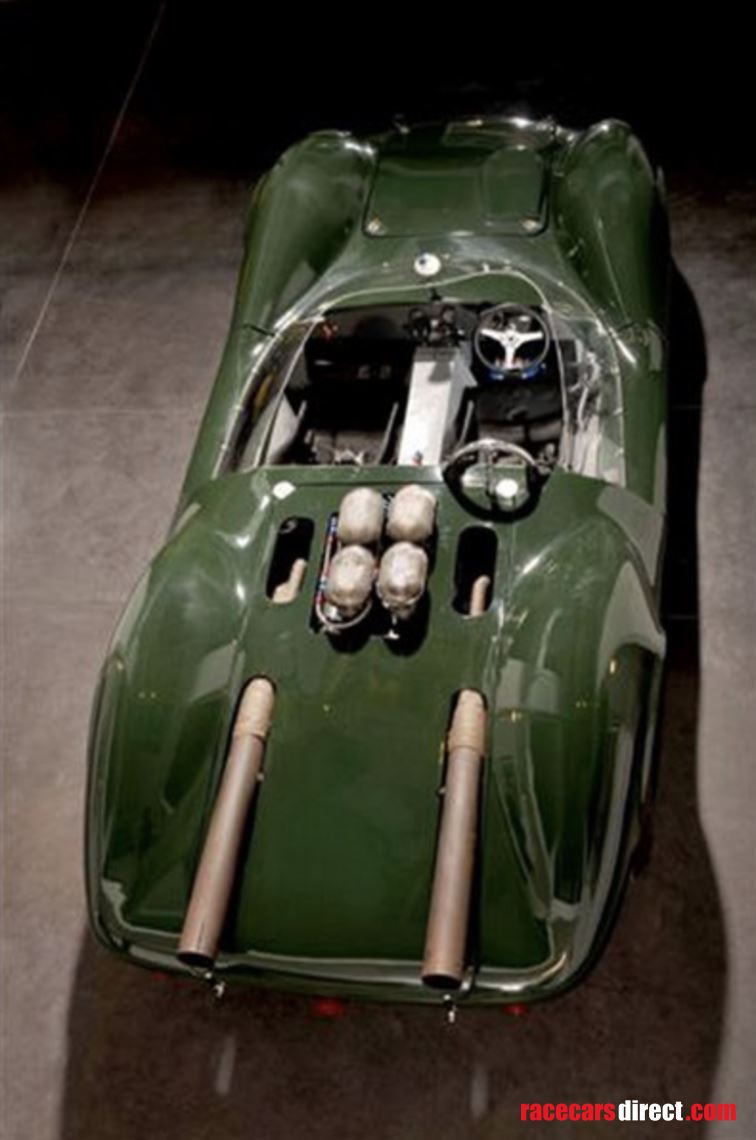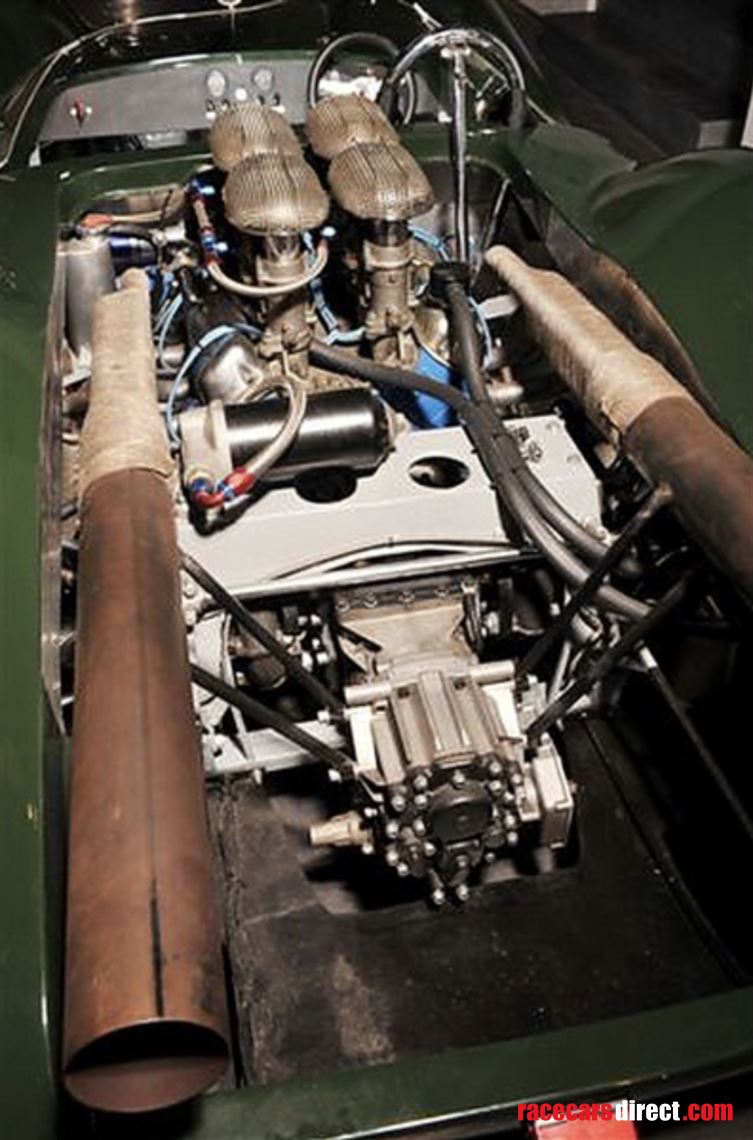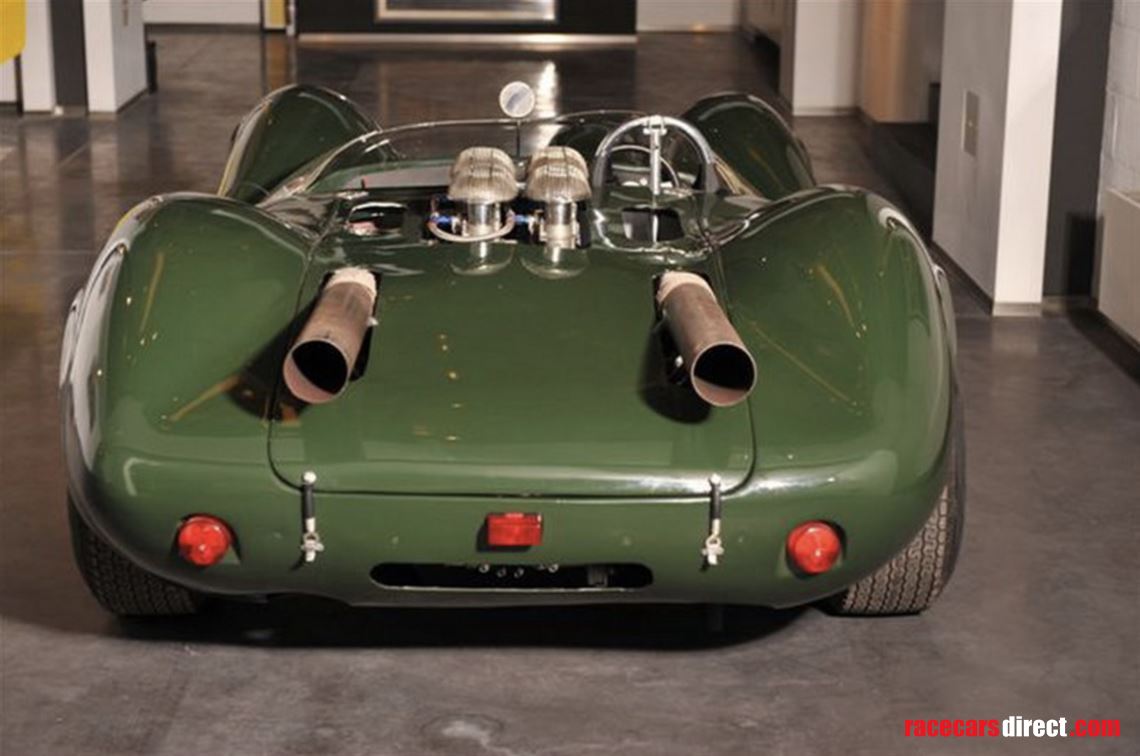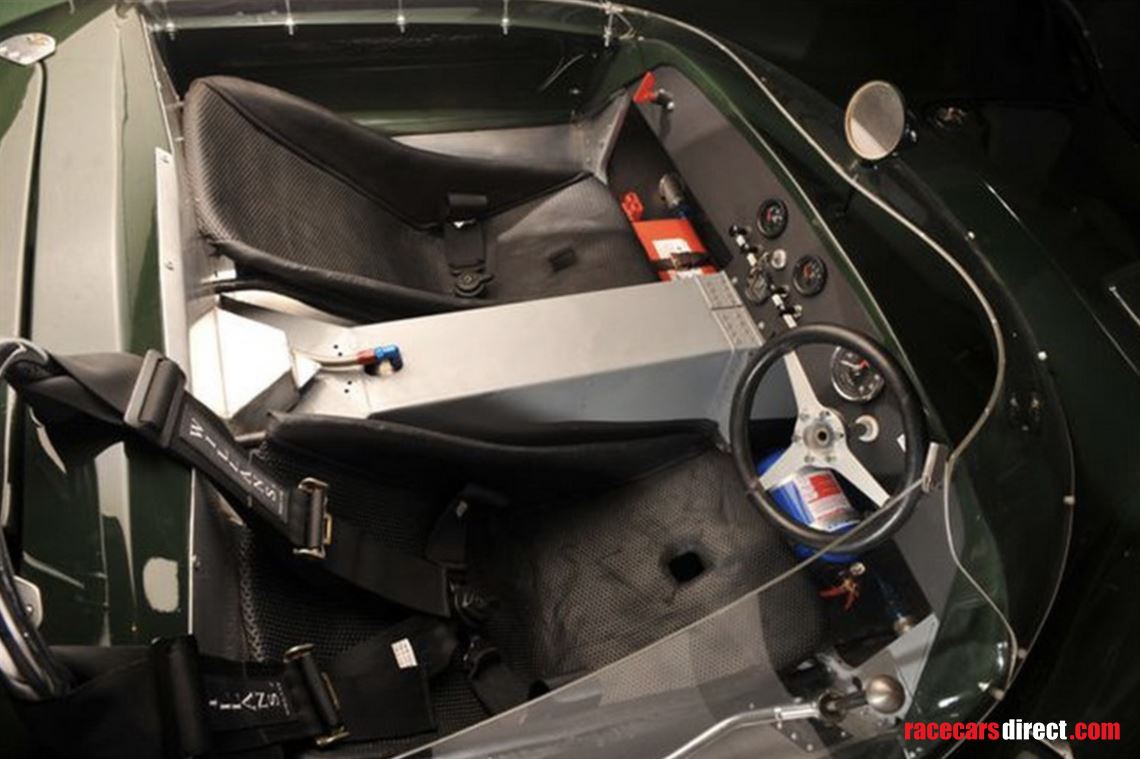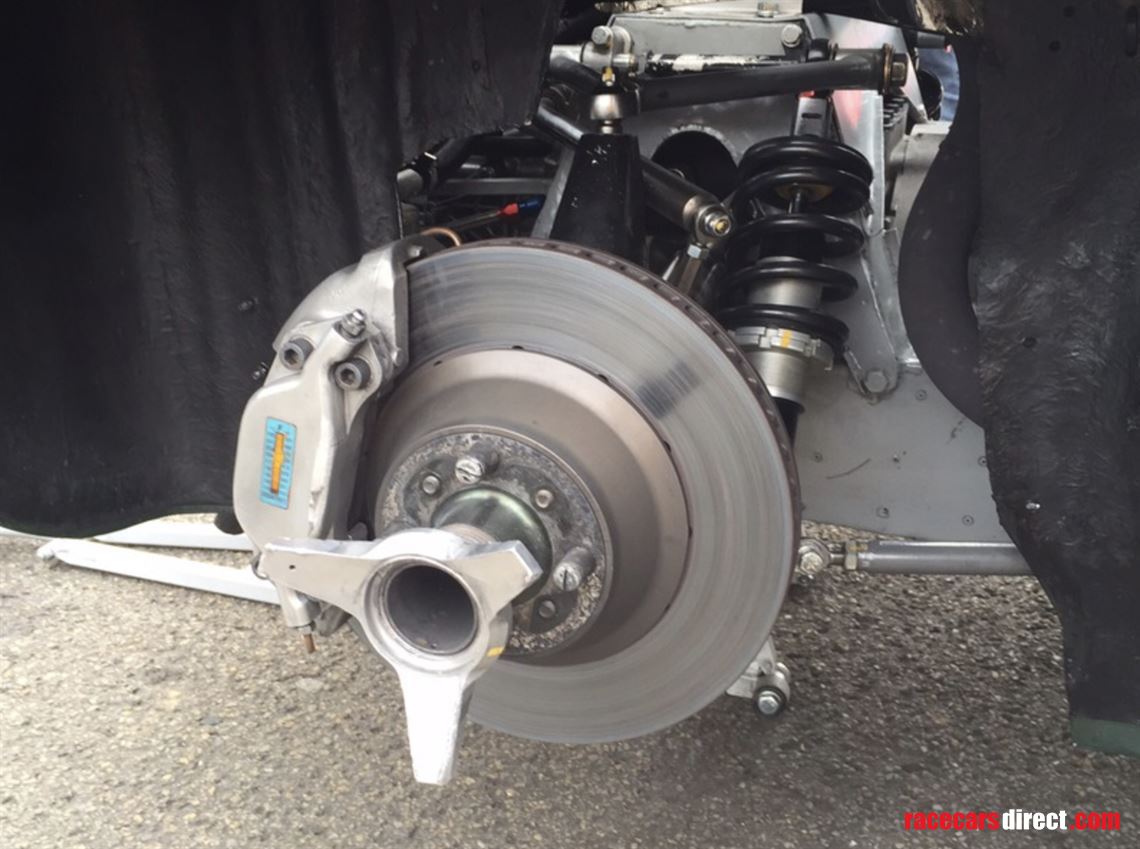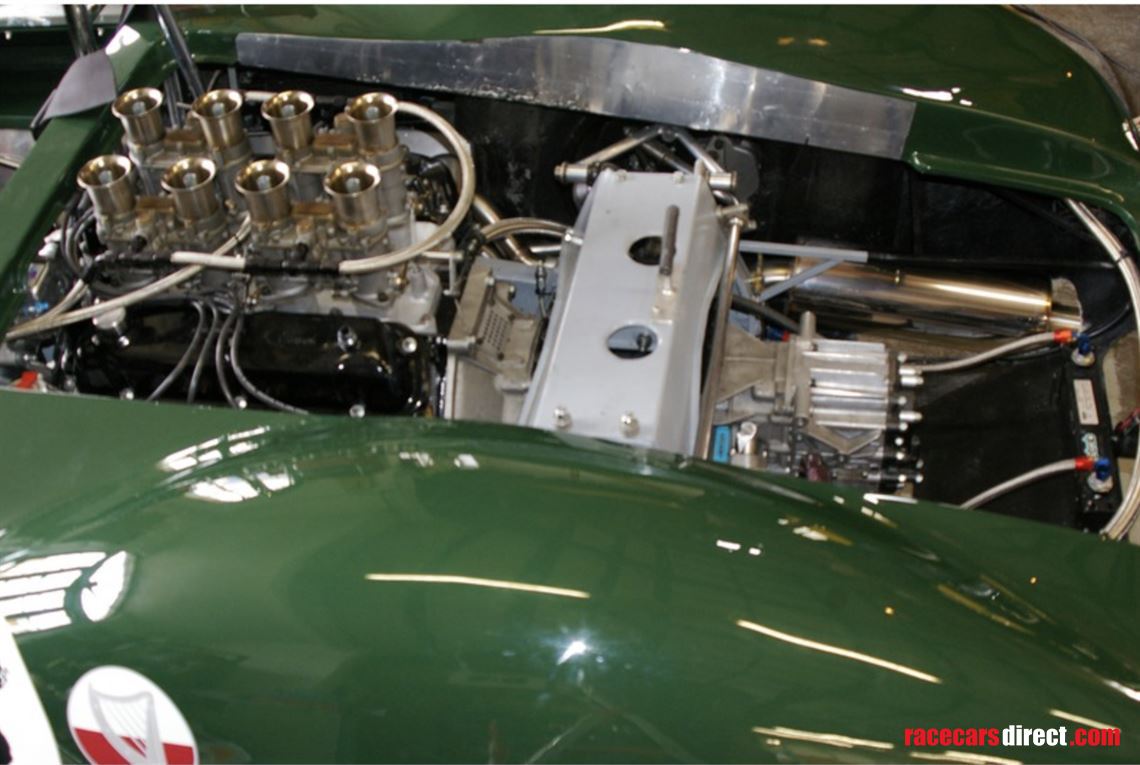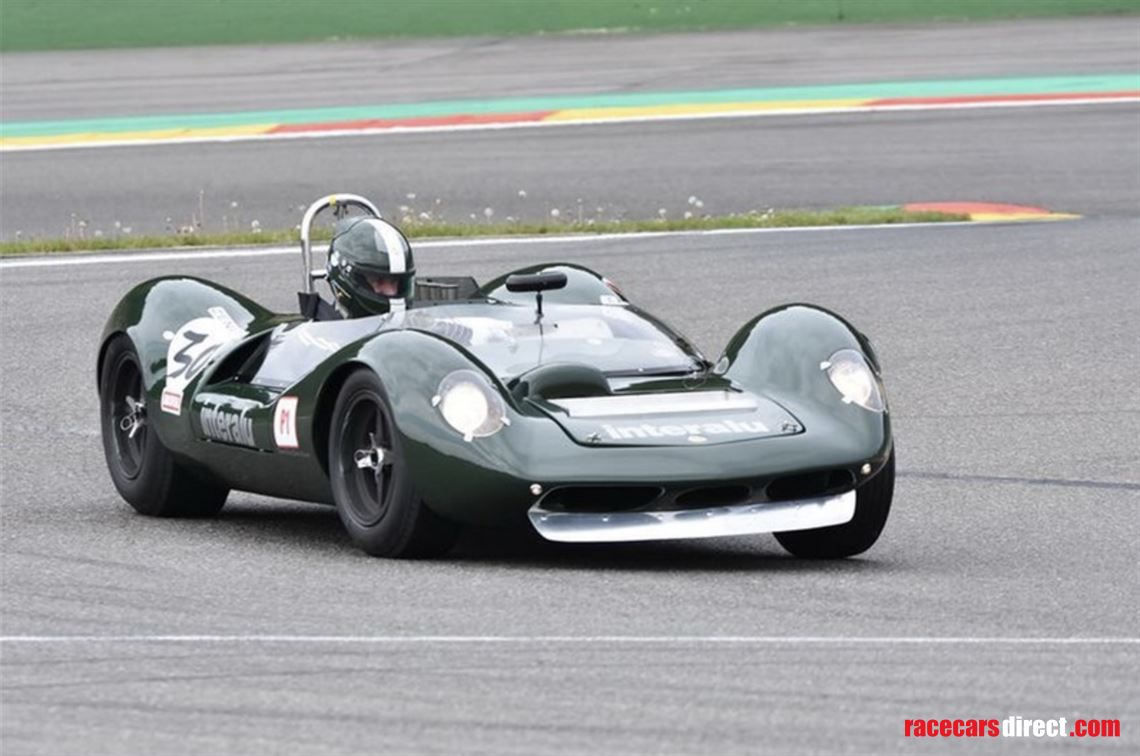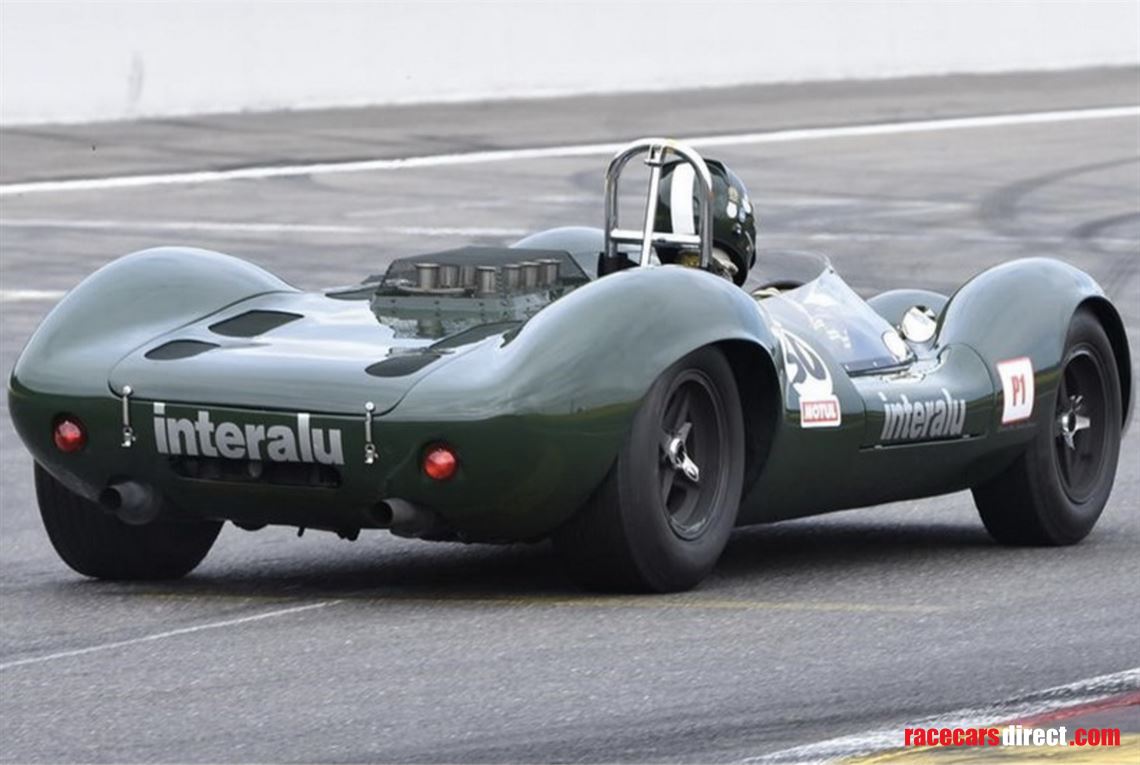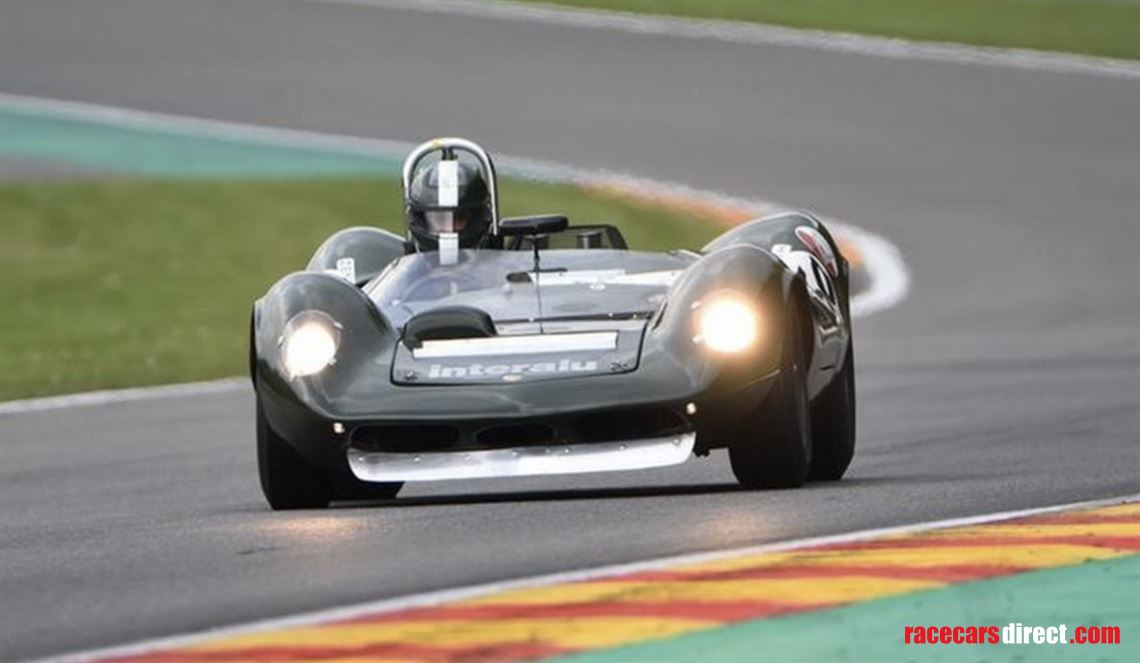Race & Rally Parts

€ POA
Lotus 30 Mk1 Group 7 Sports-Racer - SOLD
This is now SOLD. Search for similar items.
Description:
Lotus 30 Mk1 Group 7 Sports-Racer
- Stunning Lotus 30 updated to Mk2 specification
- Raced in 1964 and 1965 Governor's Trophy at Nassau, Bahamas
- Impeccably maintained and 100% race ready with very extensive spares
- Very well documented with history file and current FIA HTP
- Highly eligible for Peter Auto CER1, Masters , Le Mans Classic, Goodwood Revival and Members meeting.
We are very pleased to offer this stunning, pristine and rare 1964 Lotus 30 Group 7 Sports racer - chassis 30/L/7 - for sale.
In the early 1960s, combining a British chassis with an American V8 engine proved to be a very successful method of creating a competitive sports-racer. This trend had begun a few years earlier with the Chevrolet-engined Listers, while the likes of Cooper and Lola quickly followed suit. The genre’s best known example is the AC/Shelby Cobra, although international (Group 7) sports car racing would be dominated by far more advanced and powerful Anglo-American hybrids. Ford too recognised this to be a shortcut to sports car racing success and in their quest to beat Ferrari at Le Mans looked to team up with a British manufacturer. Eventually Lola was chosen, which left Lotus boss Colin Chapman bitterly disappointed and determined to prove the boys from Detroit wrong.
While Lotus had limited experience with powerful, large capacity engines, there had been notable success with a V8-engined Lotus 19 in 1962 and 1963. This two-seater racer used a traditional and very effective tubular spaceframe chassis, but for his new Group 7 car Colin Chapman decided to use a backbone chassis similar to the newly launched Elan roadster. It consisted of a central box-type construction, supplemented in two narrower sections at either end to support the suspension, engine and gearbox. In the four-cylinder Elan, this novel idea worked very well, but several key personnel within Lotus were worried that it would not be up to the task in the proposed sports-racer. Chapman pressed on and at the 1964 London Racing Car Show unveiled the Lotus 30, one of the most striking and daring of all the many racing car designs that he would produce.
Like all Lotus racing cars that preceded it, the 30 looked like a very effective machine with well considered aerodynamics. Within the very low body, all the mechanicals were attached to a backbone chassis, which was prominently visible within the cockpit. Suspension was by double wishbones all round with the rear lower wishbones reversed. Immediately behind the driver, the chassis separated into two spars, rather like a tuning fork, which supported the engine. The powerplant of choice was Ford’s 289ci (4.7-litre) V8 that was delivered to Lotus developing around 270bhp. With some fine-tuning and the addition of four Weber carburettors, Lotus’s engineers found another 80 horsepower for a total of around 350bhp, which was transmitted to the wheels via a sturdy ZF five-speed transaxle.
With its slippery body, 350bhp and a kerb weight of less than 700kg (1,540lb), the Lotus 30 looked to set to become a dazzling success. Unfortunately it was not quite that straightforward, and the sceptics within Lotus were proven right. The large hike in power compared to the Elan was too much for the thinly skinned backbone chassis to handle, with considerable flex as a result. Furthermore, the car suffered from overheating and proved difficult to maintain properly. For example: to change the ratios in the gearbox the entire rear suspension had to be removed.
The first car was sent to Ian Walker together with Team Lotus’s No. 1 driver, Jim Clark. He struggled yet somehow managed to finish in 2nd place on its debut. Later that year Clark had a big accident when a chassis broke instead of flexing. Nevertheless, Chapman was reluctant to give up and continued development. By the end of the 1964 season the works Lotus 30 had undergone considerable development, and in the important Los Angeles Times Grand Prix at Riverside, California, Clark finished in a storming 3rd place overall.
For the 1965 season Chapman launched the ‘Mk2’ series, which featured a stronger chassis, front/rear spoilers, and bigger and wider wheels, while some cars were fitted with Tecalemit-Jackson fuel injection. The changes were an improvement, but the Lolas and McLarens proved difficult to match. A third evolution with an even stronger chassis and larger engine was used later that year. It was designated ‘Lotus 40’ and famously described by Richie Ginther as ‘a Lotus 30 with ten more problems.’ Despite the Lotus 30’s shortcomings, the brave and hugely talented Clark still managed to score three wins, although all came in relatively minor events. In the space of two years, 30 Lotus 30s and three Lotus 40s were constructed, nine of the former being to the later ‘Mk2’ specification.
Our car, Lotus 30 Mk1 chassis number ‘30/L/7’, was originally sold to Duchess Auto in California in November 1964. It was raced at Nassau and in various SCCA events. After that the car was kept in display condition. In 1979 the car was bought by Alex Seldon and prepared for historic racing in the UK. Seldon had some success in HSCC events with it, as well as winning the 1980 Classic Sports Car Championship.
‘30/L/7’ has been updated to ‘Mk2’ specification, with 15” wheels, a detachable chassis section and other improvements. It has an original and correct Ford 289ci FAV engine (a very early Ford Advanced Vehicles GT40 unit prepared by Stuart Mathieson’s Mathwall Engineering) rated at 380bhp. The Tecalemit-Jackson fuel injection has been replaced by Weber 48 IDA carburettors (the horsepower was around 350 at 6500rpm at this time) while the gearbox is a fresh, reconditioned and correct ZF 5 DS-20 unit.
In 1981 the Lotus was sold to Jeffrey Wakelin as well as being featured in Bonhams’ consultant, Doug Nye’s excellent ‘Old Moto’ article ‘The Beautiful Miscalculation’ in October 1981. Doug shoehorned himself into the Lotus and completed a few laps in it. At that time, the car was finished in red and presented in gorgeous condition. Wakelin raced it occasionally and then put the car up for sale the same year.
‘30/L/7’ was then sold to the USA where it is believed that it formed part of a static collection. A European dealer bought the Lotus 30 in 2001 and took it back to Europe. It was shown at Rétromobile in 2002, selling on the first day, and shortly thereafter featured in the April 2002 issue of Classic & Sports Car magazine.
Its previous owner had the Lotus completely restored by the Belgian race car specialist and former F1 driver and Le Mans participant, Bernard de Dryver. After its restoration is was on display at the Michel Vaillant club in Brussels from where it was bought by its current Belgian owner in 2012. Since then, the car has been actively campaigned on the historic racing scene running in the Peter Auto CER1 race series as well as being a regular participant in the Goodwood Revival Whitsun Trophy and the Members meeting. Its owner is a perfectionist which can clearly be seen when looking at the condition of this very sexy Lotus 30. Both cosmetically but also mechanically the car is utterly race ready with no-expense-spared evidenced by recently crack-testing and with its Ford 289ci engine and ZF-gearbox only having about 15 hours running. Last but not least, the car comes with a very extensive spares package consisting of 6 wheels, a complete new body, suspension items, spare radiator, oil cooler, spare ZF-gearbox and miscellanous running spares. There is also an optional 2nd fresh 289ci engine available as well as an original 289ci FAV engine (a very early Ford Advanced Vehicles GT40 unit).
Lotus 30/L/7 is very well documented with a 60+ page history file and FIA HTP papers valid until the end of 2025.
This fabulous British Racing Green Lotus 30 is offered for sale in fully race-worthy condition, ready for historic events such as the Peter Auto CER1 series, Masters Sportscars and the Goodwood Revival and Members events.

